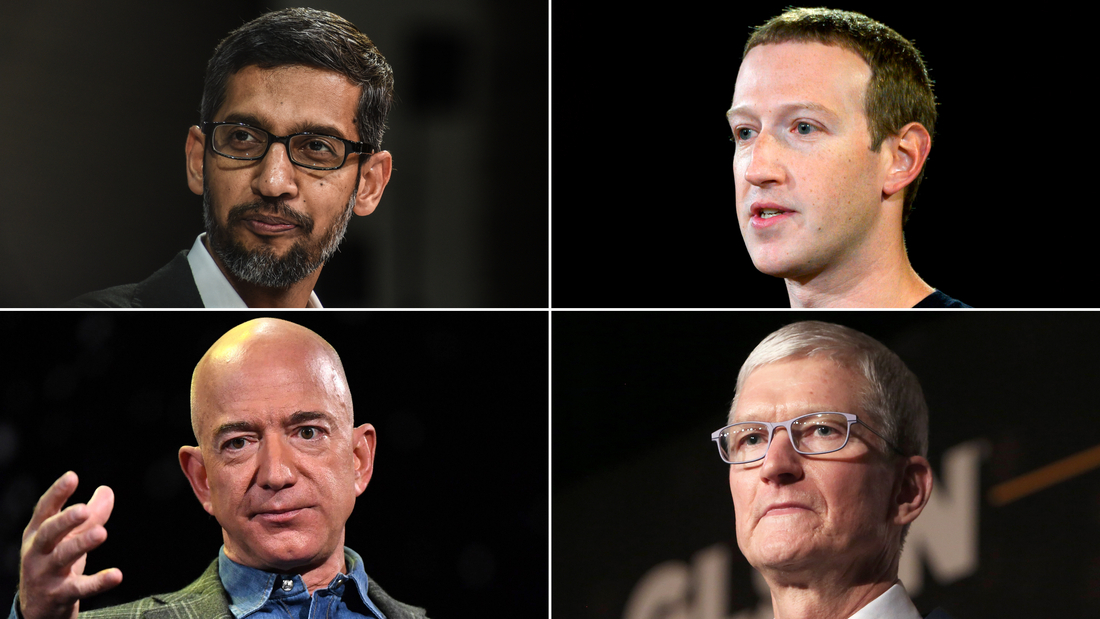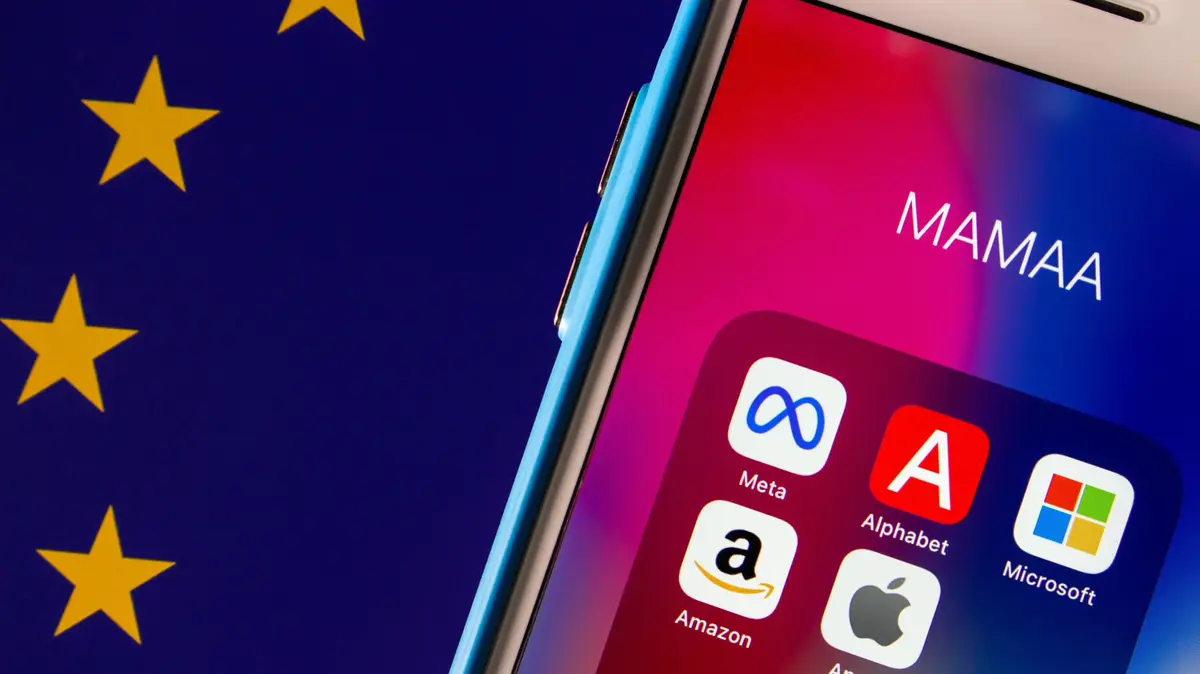The meaning for humanity of giants like Google 2:25
(CNN Business) ––
Officials across Europe unveiled legislation on Tuesday that would give regulators new powers and far-reaching restrictions to take on US tech giants. The move threatens huge fines and increases the possibility of separations. or prohibitions for repeat offenders.
The European Commission published a set of preliminary policies that would force companies to change their business practices.
It represents the most aggressive legislative effort to curb companies like Amazon, Apple, Google and Facebook to date, according to industry experts.
LOOK: 5 conclusions from the interrogation of the powerful Amazon, Apple, Facebook and Google
Large social media companies and e-commerce sites face new obligations to remove harmful and illegal content from their platforms.
This under a legislative project of the Union called the Law of Digital Services.
A second proposal, under the name of the Digital Markets Law, would subject companies that are classified as “guardians” to a list of what should and should not be done to avoid unfair competition.
For example, those companies would be prohibited from using data obtained from business users to compete against them.
The purpose of restrictions in Europe
The two proposals have a purpose.
It's about making sure that we, as users, have access to a wide variety of secure online products and services.
And that companies operating in Europe can compete freely and fairly online as they do offline.
This was explained by Margrethe Vestager, European Union commissioner who leads the charge on technological issues, in a statement.
Britain, which left the European Union earlier this year, is also joining the move.
Tech companies that do not remove or limit the spread of illegal content will face fines of up to 10% of their annual sales, under the rules proposed Tuesday.
LEE: The legal battle to divide Facebook is underway.
Now comes the hard part
"Europe is once again at the forefront of the world and is taking quite drastic measures on the technology regulation front far beyond what any other country or region ... is contemplating or looking for," said Thomas Vinje, partner at the law firm Clifford. Chance in Brussels.
advertising
Companies that do not comply with the content policies outlined by the European Union could be fined up to 6% of global revenue.
In addition, those who are repeat offenders would suffer temporary bans from their platforms.
Existing powers to impose antitrust fines of up to 10% on global revenues will be extended to more areas.
And, in the future, violators could be forced to sell parts of their business if they continue to break the rules.
Opposition from the tech giants
Tech companies are expected to strongly oppose the proposals.
'We look forward to working with EU policy makers to help ensure that the proposals meet the stated objectives.
So that Europeans continue to reap the full benefits of digital products and services, ”the Computing and Communications Industry Association said in a statement.
This trade group represents Amazon Facebook, Twitter and Google.
"We hope that future negotiations seek to make the EU a leader in digital innovation, not just digital regulation."
Amazon faces antitrust charges in the European Union 1:48
Proposed legislation could take years to enact and would still face major revisions.
However, as a measure it adds to the growing pressure on big technologies around the world.
Vestager told a news conference that the actions taken by the European Union, the United States, Australia, Canada and Japan are "part of a global conversation."
"The important thing here is that with size comes responsibility," he said.
In the sights of other places
In the United States, the federal government and states have launched historic antitrust lawsuits against Google and Facebook.
This, in bets that directly challenge the dominance of the biggest names in Silicon Valley.
The Federal Trade Commission wants to force Facebook to sell Instagram and WhatsApp, separating the company.
LOOK
: Lawsuits in the US criticize anti-competitive actions by Facebook and Google is also in the crosshairs
The UK government warned that it was prepared to ban platforms that don't take the new rules seriously.
As well as imposing criminal sanctions on senior managers.
I am blatantly in favor of technology.
But that cannot mean a technology at any cost, 'UK Digital Secretary Oliver Dowden said in a statement.
“We are entering a new era of responsibility for technology to protect children and vulnerable users.
Also to restore confidence in this sector and to enshrine in law safeguards for freedom of expression.
A small group of companies with the largest online presence, such as Facebook, TikTok and Twitter, will face the strictest regulations in the UK.
They should assess the risk of content that "causes significant physical or psychological harm."
As well as making it easier for people to report harmful content and posting transparency reports on your efforts.
The draft of Europe's new measures is an acknowledgment that the region's previous efforts to preserve competition through lengthy investigations have not been effective in addressing the behavior of companies like Google and Apple.
Also, that a more aggressive action is needed.
LEE: The US Government sues Google for alleged anti-competitive abuses in searches
'European antitrust cases take too long.
And when they are resolved, the anti-competitive behavior has achieved its goal, ”said Vinje.
"There has been a feeling for some time that something more needs to be done."
Europe restrictions 'punish successful companies'
The EU proposals drew a strong scolding from the powerful US Chamber of Commerce.
The entity said it was "concerned" that the proposals "target almost exclusively US companies, imposing onerous new regulatory requirements backed by heavy financial penalties."
"It appears that Europe intends to punish successful companies that have invested heavily in Europe's economic growth and recovery," Chamber official Myron Brilliant said in a statement.
"Furthermore, these measures will not improve Europe's own competitiveness."
Some large US tech firms also expressed concern.
"Although we will review the commission's proposals carefully in the coming days, we are concerned that they appear to be specifically targeting a handful of companies and that they will make it difficult to develop new products to support small businesses in Europe," said Karan Bhatia, Google Vice President in government affairs and public policy, in a statement.
When asked for a comment, Amazon pointed to a blog post earlier this month saying that it is best for Europe to continue fostering innovation.
Also that hundreds of millions of dollars have been spent to prevent counterfeit products and fraud on its platform.
Facebook took a cautious approach.
In that sense, he said that the company believes that the EU proposals are "on the right track to help preserve the good of the internet."
Apple did not immediately respond to a request for comment.
Chris Liakos contributed reporting.
AmazonAppleTechnology CompaniesFacebookGoogleRestrictionsEuropean Union







/cloudfront-eu-central-1.images.arcpublishing.com/prisa/MUTRAEQZHBADNCTJ7OTNDGNVTA.jpg)

